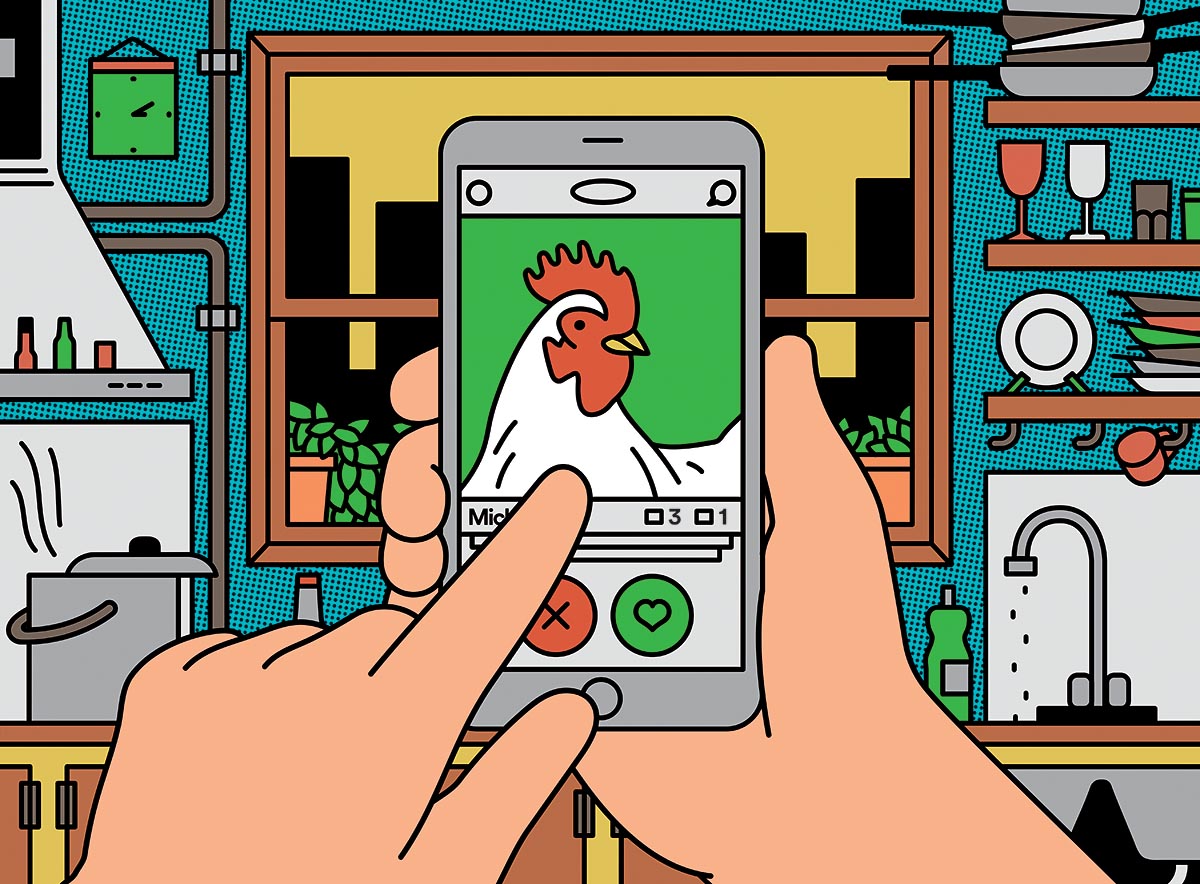If you live in a city but still want to look deep into the eyes of your dinner, you’re in luck. Thanks to blockchain technology being developed by Chinese insurance tech company ZhongAn Online, people will soon be able to use facial-recognition technology to track organically farmed chickens they’ve pre-purchased. They will also be able to monitor their bird’s movement in real-time through GPS tracking bracelets attached to birds’ legs. Welcome to the brave new world of farm-to-table eating in the 21st century.
ZhongAn is billing the program — called “GoGo Chicken” — as a way for health-conscious city slickers to follow the life cycle of their food, giving them an illusory experience of being just a little less displaced from a food system that is increasingly out of sight of most. Right now only 100,000 birds have been outfitted with GPS bracelets, but the Shanghai-based company plans to incorporate about 23 million birds into project over the next three years, pushing the Internet of Things onto Chinese farms, according to the South China Morning Post.
Once inducted into the GoGo Chicken system, the free-range birds will be attached to devices that track their movement and what kind of food they ate. Because these chickens are slow-grown, they’ll live for four to six months, as opposed to the 45 days most factory-farmed chickens live before slaughter. The facial-recognition technology will ensure that anyone who buys one of these birds will be able to actually see chicken from their smartphones. Technology that can recognize an animal’s face is not new; Google has used it to identify pets in people’s photos.
ZhongAn is trying to take advantage of the growing “farm-based tourism” trend in China, where city-dwellers take weekend trips out to farms where they can interact with food animals. The company has said its technology is a tool for members of China’s surging middle class who are also concerned about food safety and want to keep closer tabs on the sources of what they eat. Those anxieties spread rapidly in China after a 2014 crisis in which a supplier for McDonald’s and KFC was caught selling rotting and expired meats to the fast-food chains.
This article originally appeared in Quartz.

Author
Chase Purdy is a business reporter for Quartz, where he covers the food industry, food technology, and biotech. Before coming to Quartz, Chase worked for POLITICO, where he covered the politics of food. His work has appeared in The New York Times, as well as in newspapers across the country. He is currently writing a book on future foods.